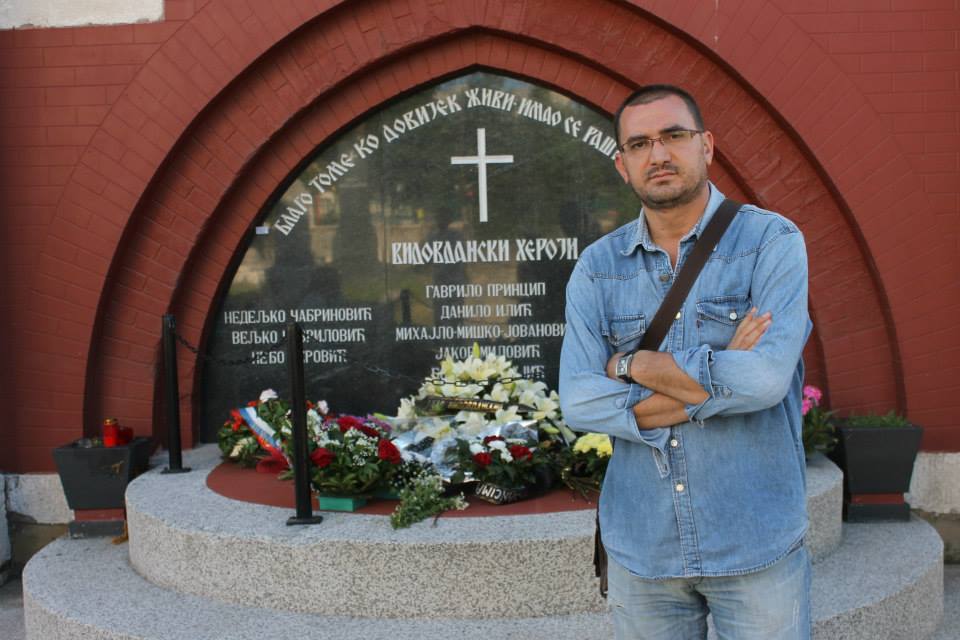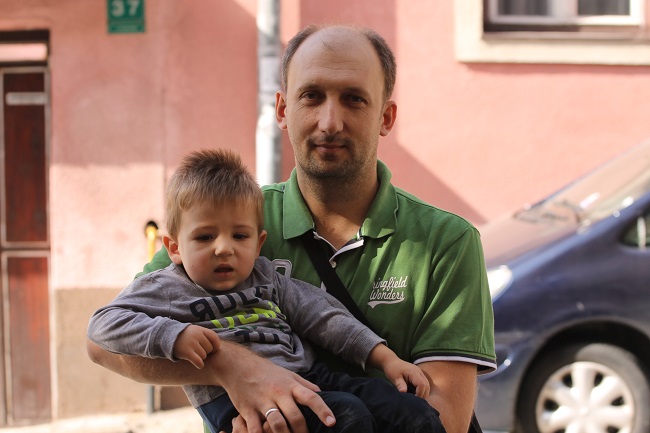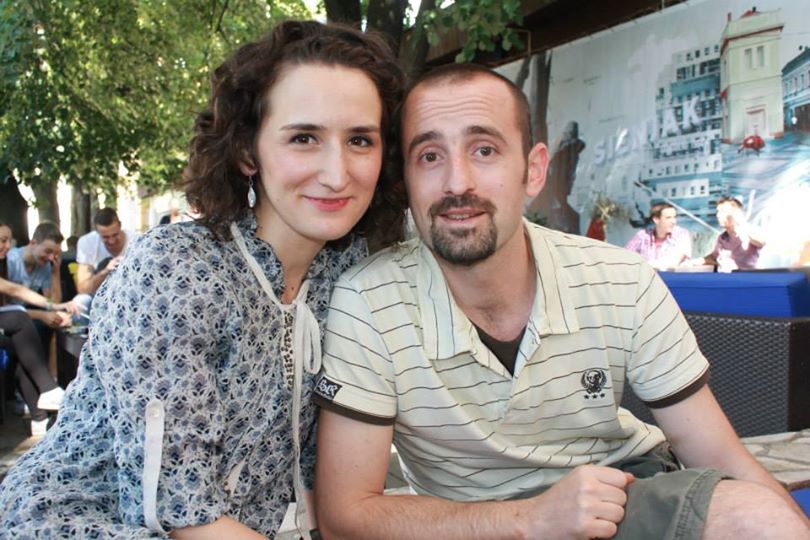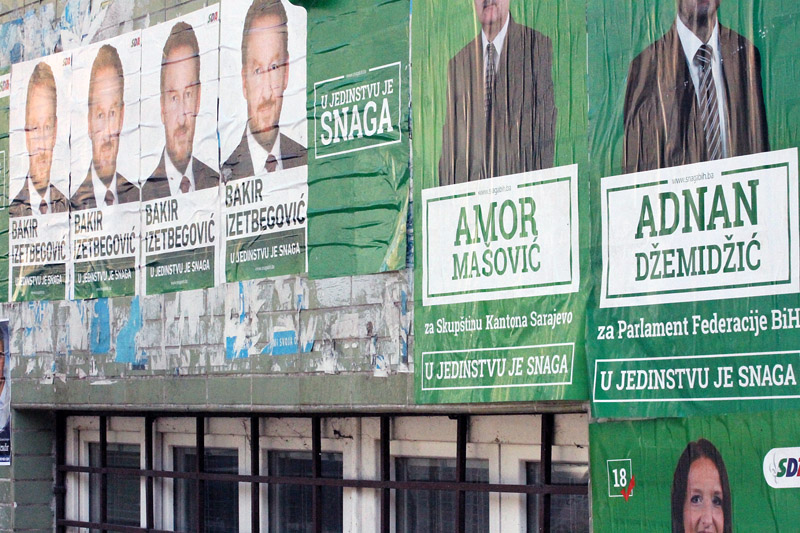Most commentators point at a critical deadlock in Bosnian politics. LSEE blog’s editorial team lists down the main issues encountered on the ground during the 12 October 2014 elections.
Nationalism is as present as ever
Bosnia and Herzegovina is tripartite in almost every aspect of its functioning, the most emblematic expression of which being its rotating presidency. Politicians tend to appeal to the ethnicity they represent because the system rewards them for that.
Many voters in urban settlements have indicated their wish for a more unified and fair system: “I hope that one day we can choose candidates not on the basis of their ethnicity, but of their real value” (Emina, Sarajevo). In practice, however, there is no big reward for politicians to advocate for a more united Bosnia.
In addition, “the economy does not work, so politicians play the nationalist card even harder”, says Dragan, an analyst and entrepreneur from Banja Luka.

Politics is the only business in town
The startling unemployment figures that reach up to 60% among youngsters, coupled with the great hardships in finding a job for those lacking political connections, make it clear why many people turn to politics.
In the recent elections, there were 7,748 candidates (out of a 3,8m population) competing for 518 mandates: Bosnia virtually turned into a nation of candidates.
“A standard Bosnian family has around five members, but this does not include the extended family, which would be ten or more members. Taking into account municipal elections, which will be organized in two years, the math is simple: almost every second family in Bosnia is somehow linked to a political subject through one of its family members”, explained Jessie Hronesova on this blog.
The ‘unreal’ unemployment figures are, in fact, unreal: grey economy prospers
On the other hand, the 44% unemployment figure (reaching up to 60% among the youngsters) is hotly contested.
“Can you tell me how it is possible that we have 44% unemployment? It is enough to sit on the Mostar bridge or at the entrance of Sarajevo city centre: the influx of workers coming in every morning is striking. Clearly, many of them work off the books. It is also no secret that a €600m road construction project employed over one hundred unreported workers. Not paying taxes equals to stealing from the state: we need to understand this. A change is needed in Bosnians’ attitude towards employment and state subsidies. I fought in the war, but still think it is a duty for me to work and pay taxes”, says Muamar, IT professional from Mostar.

War is over – fear is not
“Black humour provides a fantastic defence for Bosnians in their everyday lives, to the point that you almost forget how deep an impact war had on them”, said a respondent working in the international cooperation sector in Brčko.
But that does not mean that the trauma has been wiped out. War is still deeply instilled in people’s conscience and the current unstable political situation – with Croatians asking for their own entity and RS threatening to secede – does not offer reassurance.
“Bosnians are still afraid that a war might break out. When the protests in Sarajevo started last February, I saw plenty of people crying on the streets. They were crying their eyes out, out of sheer fear”, said Francesco Caruso, international legal expert working in Sarajevo.
Politicians will not change the rules of the game until they keep working in their favour
There are no real incentives for politicians to change their game, nor to trim down the administration. Simply, less positions mean less chances to be elected and to secure jobs for your friends and family.
Corruption and nepotism are perceived as endemic and often quoted by voters as Bosnia’s main problems.
International aid lifts politicians from their responsibilities
A partial reason for the lack of dynamism is also the fact that Bosnia is currently still the recipient of a big amount of international aid. (about 140 USD per capita per year in the past five years, which is about twice as much as Macedonia and more than ten times what Bangladesh receives).
International officers we spoke to suggested that cutting aid drastically might be a way to make responsibility finally fall on the Bosnian politicians directly and therefore provoke a stronger reaction from the public. This year the EU budget was initially cut from €90m to €45m, but it was then reinstated to help cope with the flood emergency – something for which the local politicians are accused not to have done much at all.
There is a big mismatch in perceptions as to what the EU should be doing
The frustration at the nearly 20 years of international meddling in Bosnian politics is palpable, both from the side of the European Union (whose recent Bosnia progress report reflected just that) and from the side of the country’s citizens.
Senior EU officials told LSEE that Europe can provide help with aid through the Instrument for Pre-Accession Assistance (IPA) programme, but cannot influence political structures. This needs to come from the Bosnians themselves.
This perception contrasts sharply with the opinion of Bosnians we spoke to. “We obtained a small victory in Tuzla this year, when the cantonal administration was changed as a consequence of the protests”, says Merima from Tuzla. The political deadlock and the endemic corruption are, however, too entrenched. I think the EU needs to lead us in that sense: we cannot make it on our own”. Her words were echoed by a respondent from Mostar: “I think it is very easy to see what is wrong with the administration in my city and also to understand why we cannot get out of it on our own: divisions are just too entrenched”.

There is no belief in the current generation
Jovan Divjak, the legendary general who defended Sarajevo against Serbian-led forces despite being of Serbian orthodox belonging himself, told LSEE that he has no hope in the current situation: “it is all going from bad to worse. Nationalism is eating up Bosnia”, he said. But Divjak is not one to sit and moan: since 1994 he has been running an organisation called ‘Education Builds BiH’ (Obrazovanje Gradi BiH) that invests in the education of Bosnian children and – with it – in building a future for Bosnia.
The belief in future generations is echoed by Emina, a mother of two from Sarajevo: “I am sure that my daughters’ generation will be able to overcome divisions and work together. What I dream for them is a country where they can choose freely whom to vote for and make their vote count irrespective of ethnicities.”
Politicians, however, remain blind to this potential: cold calculations lead them to ignore the under 30 electorate, preferring to appeal to the older generations.
The proliferation of smaller parties might make it more difficult to pass reforms
Several new faces appeared in the October 2014 elections.
This, in itself, is certainly a development welcome by many: “This is the first time I vote: there was simply nobody to vote for before”, said Mirza from Sarajevo.
Others, however, underlined the possible problematic implications: “Bosnia needs a party with a strong mandate to pass much needed reforms. I am afraid that the proliferation of smaller parties will lead to a dilution of the vote”.

Conclusions
Albeit marred by episodes of violence, the popular protests observed in the spring gave rise to the expectation that Bosnia’s political system might gradually shift its focus to issues that resonate horizontally across the country’s (soi-disant) ethnic lines, such as unemployment, living standards, corruption, patronage. The protests died down, however, and the rather disappointing turnout – marginally lower than in 2010 – suggests that such shift has not yet occurred: this seems to be a rather widely shared analysis.
It appears clear that international involvement in Bosnia needs to be redesigned to be effective. There is the impression that the international community still relies on the incentives generated by the prospect of acceding to the EU as the main spur to stimulate reform, because the political establishment appears secure, facing a rather meek electorate, and hardly has the vocation to dismantle a governance system that is inefficient but guarantees considerable rents. Although the president-designate of the European Commission’s statement ruling out further enlargement during the next five years lends itself to different interpretations, however, it was not a positive signal for states aspiring to EU accession. Those incentives are thus likely to be weaker than in the past decade, during which their inadequacy – or at least their inadequate use – is demonstrated precisely by the current unsatisfactory state of affairs in Bosnia.
A plausible hypothesis, therefore, is that none of the main forces that could promote progress emerges much stronger from these elections: in spite of a surprise result in Republika Srpska, the core of the political establishment has not been shaken, and yet both voters and the international community seem sceptical about its capacity and willingness to reform the country; external pressure appears weak, as it seemingly relies on inadequate instruments; and popular dissatisfaction does not yet seem capable of translating itself in increased pressure for more responsive government. Unless the balance of power between such three actors changes, therefore, the extant low equilibrium seems set to persist over the medium term.
Note: This article gives the views of the authors, and not the position of LSEE Research on SEE, nor of the London School of Economics.
________________________
Testimonies collected by Tena Prelec, Jakub Krupa and Andrea Lorenzo Capussela



1 Comments